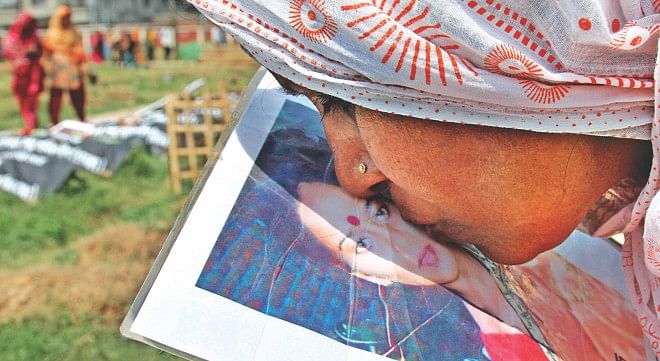Around 57 per cent of the survivors of Rana Plaza—the deadliest industrial disaster in the history of Bangladesh that left over 1,100 dead in 2013—have remained unemployed during the pandemic, a study finds.
In a victory for labour unions, a global clothing brand has agreed to pay $2.3 million to meet fire and building safety regulations in 150 garment factories across its supply chain in Bangladesh, unions say.
At the fourth anniversary of the world’s biggest workplace disaster, Rana Plaza victims and labour activists re-echo demand for punishment of culprits responsible.
Four years into the Rana Plaza disaster that killed around 1,100 people, more than 40 percent survivors remain workless. The fate of the labours has not changed yet as they did not get any compensation and proper rehabilitation, according to a new study.
 ...
...
It has been a year since Rana Plaza collapsed but nightmares still haunt the survivors.
...
As the world commemorates the one-year anniversary of the deadly Rana Plaza factory building collapse in Bangladesh, an overriding question remains: What can be done to prevent such industrial accidents in the future, especially in emerging economies and business sectors like Bangladesh's garment industry?
...
The state minister for foreign affairs, on the occasion of the anniversary of Rana Plaza collapse, yesterday urged the garment sector stakeholders not to do business in a way that it endangers people's lives.
...
Two US congressmen have written a letter to Prime Minister Sheikh Hasina expressing dissatisfaction over Bangladesh's progress in a US-prescribed action plan for regaining GSP in the American market.
...